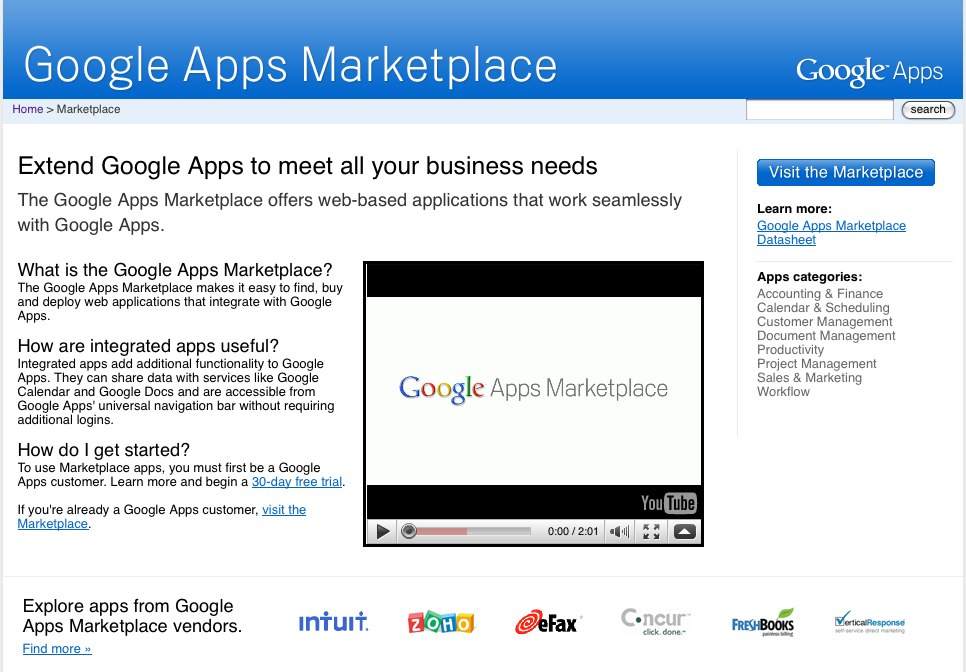Through app stores, SMBs customize tools and pave way for enterprise

IBM scored a big win a couple of months back when it convinced Panasonic to dump Microsoft's Exchange services and migrate its 300,000 employees to the cloud, via IBM's Lotus Live Platform. Some might say that Google - whose biggest scores for a switch to the cloud include the city of Los Angeles - is still a small player in cloud services, compared to Big Blue.
But when Google unveiled a new Apps Marketplace earlier this week and revealed the lineup of companies making apps available for its debut, I couldn't help but wonder if Google had actually unearthed the big pot of gold hidden in a rainbow-colored cloud.
The pot of gold I'm talking about is the small- to medium-sized business (SMB) market, a lucrative but challenging market to target because its needs are so varied and it's survival is so closely tied to economic conditions. At the same time, it's long been a segmented market with no true one-size-fits-all-and-does-everything solution.
But cracking that market is starting to get easier - and not just because Google entered the picture. Other companies - notably Salesforce and Intuit - had already recognized the value of app stores that cater to the needs of SMBs. With Google's entry, though, the ecosystem of these SMB-friendly app stores becomes more intriguing now the marketplace providers are both competitors and partners.
They each have stores of their own and want developers to unleash the data by building cost-saving tools for business customers. But their cores are different. Salesforce is built around customer relationships and sales leads while Intuit has largely been focused around financial processes such as payroll, accounting and inventory. Google, of course, started off with productivity software - mail/docs/calendar/contacts.
The apps marketplace approach makes it easier for businesses to customize their own suites of software tools by picking and choosing which apps to add-on to their Salesforce or Quickbooks or Google Apps. Remember, though, that even the platform companies also have apps of their own. Recognizing that, they don't always have to be the host and it makes sense that Intuit would have a presence in Google's marketplace with an app built around payroll services just the same way that Google Apps - with its email and contacts - is integrated with salesforce.
Chriss said that the growth behind Intuit's App store has intentionally been slow. That store, which has been around since November, has only about 50 app offerings. But each of those offerings has been hand-selected, chosen as a "high-quality" app that does more than just play well with the data. When you're dealing with a company's finances, there are other things - such as security - that need to be considered.
It's interesting to hear companies like Google, Intuit and Salesforce talk about the benefits to their customers, the businesses that buy the apps that make them more productive. But as much as it benefits those business customers, it also benefits them as the hosts - and not just from a revenue-generating perspective.
In the consumer space, mobile apps took off - thanks largely to the iPhone - and eventually, large businesses started to grasp the idea of mobile apps to increase productivity, too. Could this new push into app marketsplaces for SMBs eventually lure large enterprises further into the cloud?
As much as Google and the others seem to like the small business market, I'm sure each of them would roll out the red carpet for a big enterprise with hundreds of thousands of employees who need an escort into the cloud.